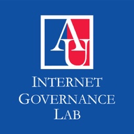Dr. Luis Hestres is a tenure-track assistant professor of digital media at the University of Texas at San Antonio. He received his Ph.D. in Communication from American University in 2014.
By Kenneth Merrill
With last week’s announcement by FCC chair Ajit Pai that the agency plans to dismantle a set of landmark net neutrality regulations, many have asked what such a move could mean for consumers, the tech industry, and the future of the internet as we know it.
Discussing the implications of the proposed repeal on Texas Public Radio’s “The Source” on Monday, SOC alumnus and professor in digital communication at the University of Texas at San Antonio Dr. Luis Hestres described net neutrality as “the principle that internet service providers can’t discriminate against any type of data that flows through their networks.”
Click here to listen to the discussion.
The current net neutrality regulations, put in place by the Obama administration, categorize broadband as a public utility (on par with electrical and telephone grids), prohibiting internet service providers (ISPs) from “throttling” or otherwise slowing down the flow of data from certain websites or from charging more for high-quality streaming from certain websites.
The proposed repeal has reignited a debate between large telecom providers like AT&T and Verizon on one side and increasingly powerful tech companies like Google and Facebook on the other. Silicon Valley firms and internet freedom advocates argue that dismantling the regulations would stifle innovation and give ISPs the power to serve as digital gatekeepers.
Further complicating matters, the FCC proposal comes as the Department of Justice is suing AT&T to block a proposed $85.4 billion bid for Time Warner, a deal that would see the telecom giant acquire CNN, HBO, and Warner Brothers Pictures in an effort to merge content and distribution (a strategy already embraced by one of AT&T’s chief competitors Comcast, whose purchase of NBCUniversal was approved in 2011). Taken together, the government’s contradictory stances toward AT&T reflect the difficulty in reconciling the increasing consolidation of the telecom and media ecosystems with the current administration’s anti-regulatory pro-business agenda.
But as Dr. Hestres explains, the telecoms themselves have engaged in similar doublespeak, especially as it concerns net neutrality. “The telecoms are saying one thing to the FCC and something completely different to their investors,” ensuring their shareholders that they continue to invest heavily in network architecture even as they claim that the net neutrality rules have stalled investment in broadband.
Adding to these competing (often contradictory) set of interests, New York Attorney General Eric Schneiderman published a letter to the FCC last week alleging that the agency’s public comments process, which allows citizens to voice their concerns on the proposed net neutrality repeal, “has been corrupted by the fraudulent use of Americans’ identities.” While it is as yet unclear who is behind the fraudulent comments (Schneiderman’s office received no “substantive” response from the FCC) it would seem to represent another instance in which networked actors have meddled in institutions of governance and the democratic process. “If law enforcement can’t investigate and (where appropriate) prosecute when it happens on this scale, the door is open for it to happen again and again,” wrote Schneiderman.
Update: On Monday, December 11, Dr. Hestres explained the net neutrality decision on KENS TV, a local CBS affiliate in San Antonio. Check out the video here.

